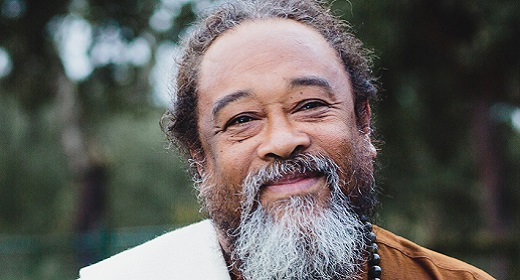by Arjuna Ardagh: In a previous article I talked about the single most important factor that makes Radical Brilliance reliable and predictable.

I talked about why Albert Einstein, Jack Canfield, Jane Goodall, Steve Jobs, and many others had ideas that had never been thought before.
However, that is not the end of the story. Twenty years ago I used to believe that that was all it took: to reconnect back to your true nature as infinite, without birth and death, beyond male and female, beyond nationality, and then to let things just flow from there. I have had to revise my opinion since: I have discovered that many, many people—perhaps most people who have deep mystical experiences of their true nature as limitless—do not in fact end up translating that kind of transcendence into inspiring and creative acts of brilliance. Temporarily, this might move us back into the old idea that it just comes down to genetics, or luck, or being some kind of a different or superior human being.
But not so fast.
By working so intensively with coaching clients over such a long period of time, I have discovered that there is another mechanism at play. I have realized that when we drill down, everybody is having original, unusual, and brilliant ideas all day long, or at least several times a day. However, most of these ideas—as they bubble up from the source of where all original brilliance comes from—collide with barriers of protection on their way towards the surface in getting expressed. They hit up against barriers we hold onto in consciousness that could loosely be called “points of view.” A point of view is a perceptual distortion of reality, which slants things in a particular way so that we end up seeing things prejudiced by what we expect things to be.
In the previous article, we compared the habitual way of having imitative thoughts to a Newtonian model of physics, while true creativity can be compared to a quantum model. And now we can draw another parallel from physics, which is the understanding of Heisenberg’s uncertainty principle. Without going into too much detail, Heisenberg’s experiments (which have been duplicated in all kinds of ways since) demonstrate that in the quantum field the results of the experiment are frequently determined by the expectations of the human experimenter. For example, a subatomic particle behaves as a wave until the human scientist observing it tries to measure it, and it then conveniently and obediently becomes a particle. In just the same way as creative impulses arise out of nothing (as they do for all of us), these creative impulses frequently never make their way to see the light of day because they collide on their way with limiting expectations of how things should be. Examples of some of the most frequently limiting points of view are:
- I am not good enough
- Nobody will listen to me
- There is not enough time
- I cannot do it
- There is not enough money
- There is something wrong with me
- Do not hurt me
All of these repeating patterns in consciousness stifle and kill creative impulses. Where do these limiting points of view come from? We might assume they are borrowed from your father or your mother or from the church or from your teachers, but that does not quite explain it all, because great geniuses also had fathers and mothers, and they were subject to the church, and they also had schoolteachers. Yet we can postulate a different environment where creativity does not get squashed quite so much.
The simple answer to this question has to do with resistance. All of us are subject to these kinds of thoughts all the time. This is one of the most important things I try to remind my clients: the point of view “I cannot do it” or “No one will listen to me” will cross through every creative person’s mind many times an hour. The difference between an active and an inhibited creator is not whether these thoughts are present, but how much power they have. It all comes down to resistance. Points of view of this kind are a kind of “flinching” in consciousness, a contracting against feeling or experiencing. A certain feeling, or you could say, a certain “energy.” Put very simply: if you are willing to experience “I am not good enough” and to let it be true, at least temporarily, it passes through like a traveling salesman to whom you do not answer the door. However, if there is resistance and an unwillingness to experience this point of view as it passes, it gets its foot into the door and you end up buying a whole set of encyclopedias. Learning how to “unresist” experience is the key to unblocking creativity. That is the other important thing that we do in great detail and depth in the Radical Brilliance weekend intensive. You can join me at one of these by clicking the events page here [http://radicalbrilliance.com/events/].








































